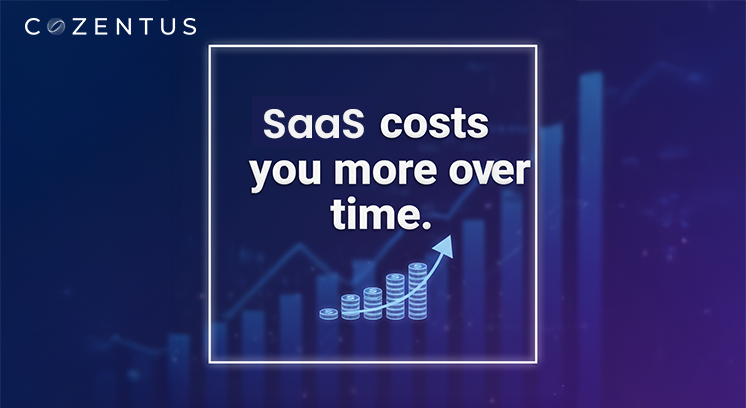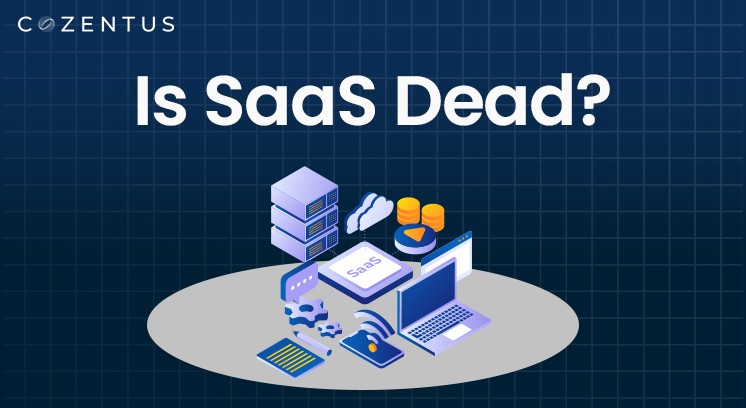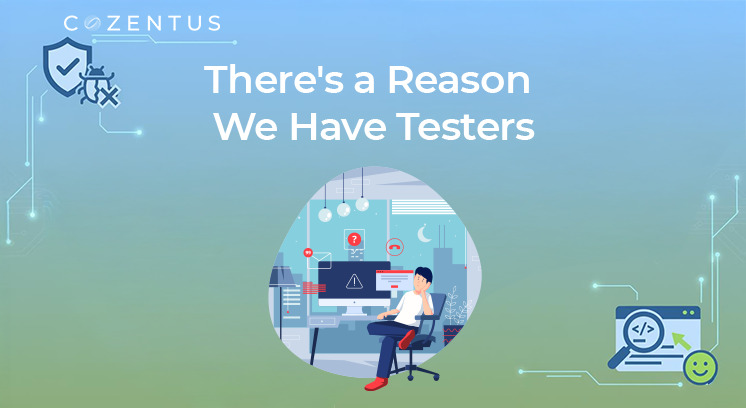What Most People Get Wrong About Custom Software
People in the business world believe that custom software is too expensive, too complex, and too time-consuming. Many decision-makers, especially in fast-moving industries like logistics, prefer ready-made SaaS solutions because they seem cheaper and can be deployed quickly.
But the truth is that custom software often costs less in the long run. And not just in money, but in time, control, and business outcomes.
Think about it like this. You can buy a suit off the rack, and it will do the job. But a tailored suit fits perfectly. It even lasts longer and makes you more confident.
The same applies to your software ecosystem.
At Cozentus, we’ve seen how businesses that choose to invest in custom solutions gain more control, scalability, and a competitive edge that far outweighs the upfront cost.
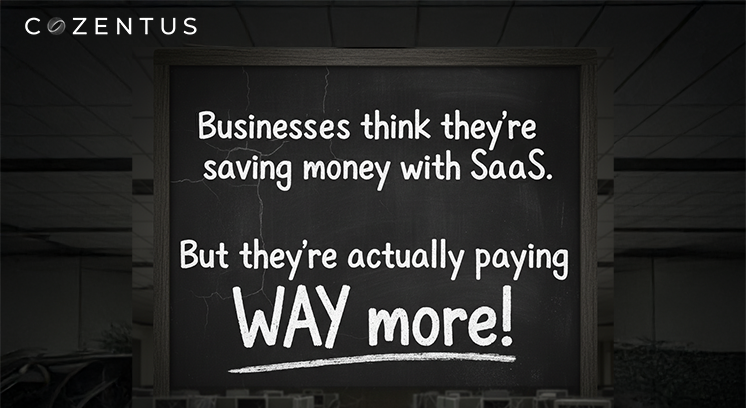
The “Cheap” SaaS Solution Actually Cost You More
At first, SaaS products look attractive. You pay a small monthly fee, and everything seems ready to use. The setup is quick, and you feel like you’ve made a smart, budget-friendly choice. But once your operations start growing, the cracks begin to show.
Here are some of the hidden costs businesses often face:
- Licensing Fees that Increase with Scale: Most SaaS tools charge per user or per transaction. As your team expands or data volume grows, your monthly costs can skyrocket. What was once an affordable option for 10 users quickly becomes too expensive for 100. Over a few years, these recurring fees can easily exceed what you would have paid for a custom-built platform that you fully own.
- Integration Headache: Every modern business relies on multiple systems, such as ERPs, CRMs, accounting software, and analytics tools. SaaS products often come with limited APIs or rigid integration rules, which make data synchronization very difficult. This creates fragmented workflows and manual intervention points, which lead to inefficiencies and data mismatching.
- Limited Customization: SaaS solutions are designed for a broad audience, not your specific business model. Even if your process doesn’t fit their framework, you still have to adjust your teams to work with them. This will limit innovation and make it harder to stand out from your competitors, who might have tailored solutions built around their needs.
- Data Dependency and Loss of Control: With SaaS tools, your business data is on someone else’s server. You may or may not have full ownership or visibility into how it’s stored, used, or secured. If the provider changes policies, increases prices, or faces downtime, your operations are at risk. Migrating data to a new platform can also be time-consuming and costly. Sometimes it may take months.
- Limited Scalability for Unique Business Growth: SaaS tools work well up to a point, but once your business starts demanding more advanced features or unique workflows, most off-the-shelf systems struggle to keep up. You either have to buy expensive add-ons or use external services to fill the gaps. A custom solution, on the other hand, grows naturally with your growth trajectory.
- Hidden Operational Inefficiencies: When you rely on multiple disconnected SaaS products, let’s say one for shipment visibility, one for route optimization, and another for billing, your teams spend valuable time switching between systems. They reconcile data and manually combine reports. This not only slows decision-making but also creates blind spots that affect customer experience and profitability.
In logistics, for example, we’ve seen companies spend huge amounts on multiple SaaS tools. Yet they still lack a unified, real-time view of shipments, exceptions, and overall performance.
But with a custom-built solution, you can bring everything together into a single connected ecosystem that scales as your business grows. Instead of adjusting to a tool’s limitations, the system adjusts to your way of working. That’s where the real savings and competitive advantage begin.
The Real Value of Custom Software
When you invest in a custom solution, you’re investing in a system that’s designed around your business.
Here’s where the real value shows up:
- Scalability from Day 1: Your solution grows with you, whether you add new markets, products, or data sources. You don’t need to keep buying separate modules or migrate to new platforms as you scale. The system simply expands with your business.
- Integrate as you like: Everything connects seamlessly. Be it operations, finance, analytics, or customer experiences. With one unified system, you eliminate silos and get real-time visibility across all business functions.
- You Own the Data: You decide how to store, manage, and secure your data. You’re not dependent on an external vendor’s platform or pricing. Full ownership gives you control, compliance, and confidence in your data decisions.
- Long-Term Savings: You avoid recurring license fees and vendor lock-ins that usually come with SaaS tools. Over time, your investment pays for itself through lower operational costs and higher process efficiency.
- Better User Experience: Custom software is designed around how your teams work. This makes them highly intuitive and efficient. As a result, it reduces training needs, minimises manual effort, and helps employees perform better every day.
- Innovate to your Wish: You have the freedom to add automation, analytics, or AI capabilities whenever your business is ready. This flexibility keeps your systems modern and your organization ready for future growth.
At Cozentus, we help businesses design systems as per the way they work, not how software companies think they should. Whether it’s an automated testing platform, a custom-built logistics visibility solution, or an AI-powered analytics dashboard, every element is aligned to business value.
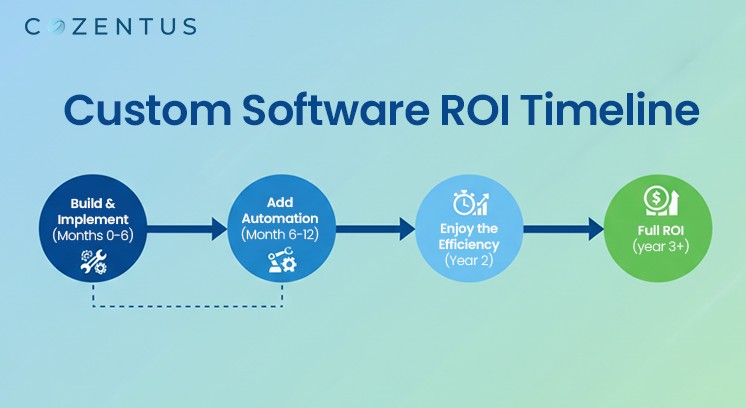
How Custom Software Reduce Costs Over Time
Yes, custom development is an investment. But like any smart investment, it pays for itself over time.
Here’s how:
- Less Workarounds, More Efficiency: You don’t waste time switching between multiple tools, copying data, or managing duplicate tasks. Teams can focus on meaningful work instead of manual coordination, which boosts both accuracy and productivity.
- Automation that you Can Scale: Custom systems can automate repetitive processes that reduce productivity, such as data entry, shipment tracking, or financial reconciliations. As your business grows, automation expands with it.
- Lower Maintenance Costs: You own the system, so you control when and how it’s updated. There are no forced upgrades or surprise version changes. This makes planning and budgeting easier, and maintenance costs remain predictable over time.
- Improved Accuracy and Visibility: For logistics companies, a single source of truth means less errors, faster delivery decisions, and more reliable communication with customers. Teams can make better decisions because they trust the data they see.
- Better Utilization of your Resource: Custom software helps you allocate resources more effectively by streamlining workflows and removing unnecessary tools. Your IT and operations teams can focus on strategic improvements instead of troubleshooting integration issues or managing multiple systems.
- Faster Adaptability to Market Changes: When business needs a shift, your custom system can be quickly updated to support your new products, workflows, or customer demands. This speed saves both time and cost compared to waiting for a third-party vendor to roll out updates or new features.
A Real Case: When Cozentus worked with a leading logistics service provider, we developed a custom automation platform that reduced their operational workload by 45% within six months. What looked like a big project at first became a cost-saving engine within the first year.
Read the case study here: Bill of Lading (BL) Automation | Case Study
Custom Software Gives You Full Control
Every business leader knows the frustration of being stuck with rigid systems that can’t keep up with change. Custom software puts you back in control.
You decide:
- What features to build
- How your workflows should operate
- When to scale or integrate new modules
This flexibility is especially powerful in industries like logistics and supply chain, where market dynamics change rapidly. One client used our AI-powered visibility dashboard to anticipate shipment delays and take proactive action — something that would be impossible with a standard SaaS tool.
Control doesn’t just mean freedom. It means stability, foresight, and speed.
You might like this: 7 Reasons Why Logistics Leaders Are Choosing Custom Solutions Over SaaS
The Right Way to Get A Custom Software
Custom software doesn’t have to be complex or overwhelming. The key is the way you “approach.”
At Cozentus, we follow a structured yet flexible development process that focuses on outcomes.
We start by understanding your business. We locate where the gaps are, what’s slowing you down, and what value you want. Then we design, build, and test in agile phases. This ensures quick wins and measurable ROI at every stage.
Our core areas, like automation, visibility, testing, and analytics, are all connected to this framework. The result is a complete ecosystem built for your business, by experts who understand both technology and operations.
Final Thoughts: Think Long-Term. Build What Gives More Profits
When you look at the big picture, the question is not “How much does custom software cost?”
It’s “How much does inefficiency, lack of control, and disconnection cost us every day?”
For most businesses, that number is way higher.
Custom software is not a luxury anymore. It’s a “strategic decision” that strengthens your foundation, enhances visibility, and prepares your business for whatever comes next.
At Cozentus, we help organizations move from complex systems to flexible, data-driven, and future-ready custom solutions. Because in the end, the real cost isn’t in building something new. It’s in staying stuck with what no longer works.
Want a custom software designed specific for your business? Talk to us!
Recent Post
Subscribe to our newsletter
Stay updated on latest trends and news in the supply chain and logistics industry

